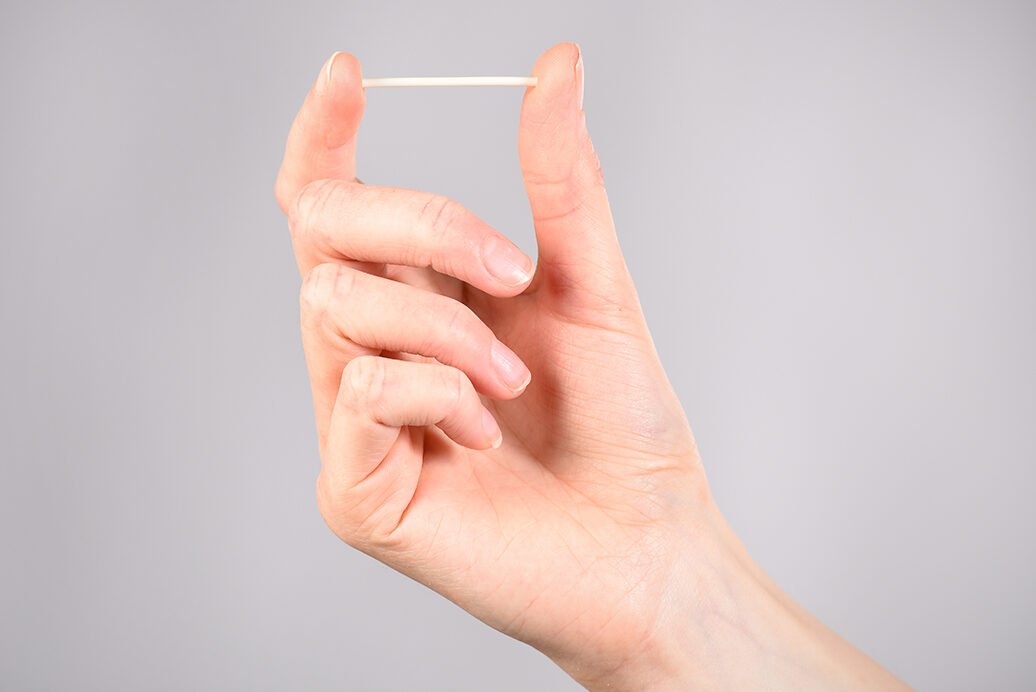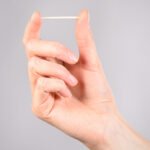Now Reading: How Long Does It Take to Get Pregnant After Going Off Birth Control
-
01
How Long Does It Take to Get Pregnant After Going Off Birth Control
How Long Does It Take to Get Pregnant After Going Off Birth Control

Stopping birth control can lead to pregnancy. But timing varies for everyone.
On average, it might take a few months to get pregnant. Understanding your body’s response after stopping birth control is key. Each person is unique, with different factors influencing how soon they might conceive. Age, health, and the type of birth control used all play roles.
Some may get pregnant quickly, while others might need more time. It’s important to be patient and informed. Knowing what to expect can ease your concerns. This guide will explore the timeline and factors involved. It will help you understand what happens when you stop using birth control. Let’s dive into what you need to know about this journey.
Transitioning Off Birth Control
Deciding to stop birth control is a big choice. Many women wonder what happens next. The body begins to adjust. Hormones shift. Changes occur. Understanding these changes helps ease the transition.
Physical Changes
Your body may take time to adjust. It depends on the type of birth control. Some notice changes in their menstrual cycle. Periods may become irregular. Others may experience cramps or spotting. These symptoms are common and usually temporary.
Weight fluctuations might happen too. Some women notice a slight weight gain or loss. Skin changes can occur. Acne may return if birth control previously helped with skin. Each body reacts differently.
Emotional Adjustments
Emotions may vary during this transition. Hormonal changes can affect mood. Some women feel more emotional. Anxiety or mood swings are possible. These emotional shifts are normal.
Communication with a partner is key. Sharing feelings helps manage emotions. Patience is important. Emotional adjustments take time. Support from friends or family can be beneficial.
Factors Influencing Pregnancy Timing
When considering how long it takes to get pregnant after going off birth control, it’s essential to understand the various factors influencing pregnancy timing. Your body is unique, and numerous elements can impact how quickly you conceive. Whether you’re eager to start a family or simply curious, knowing these factors can provide clarity and guide your journey.
Age And Fertility
Your age plays a significant role in fertility. Women in their 20s and early 30s typically experience higher fertility rates. As you age, especially after 35, fertility can decline, making conception potentially slower. It’s not just about the biological clock; lifestyle and stress can also affect fertility.
Consider the journey of a friend who started trying at 36 after stopping birth control. It took her longer than expected, not just due to age but because balancing work stress proved challenging. Her experience highlights the importance of considering age alongside lifestyle factors.
Health Conditions
Underlying health conditions can also influence how quickly you conceive. Conditions like PCOS (Polycystic Ovary Syndrome) or thyroid issues may affect ovulation and fertility. Regular check-ups can help identify any barriers early on.
Imagine discovering a thyroid imbalance while trying to conceive. Addressing this health condition might speed up the process significantly. It’s crucial to be proactive about your health, ensuring that any conditions are managed effectively.
Have you ever considered how your overall health impacts fertility? Keeping your body in optimal condition can improve your chances of conceiving quickly. Eating well, exercising, and managing stress are practical steps you can take.
Ultimately, understanding these factors can empower you to make informed decisions. Are you ready to take control of your fertility journey? Knowing what influences pregnancy timing may lead to quicker and more successful conception.
Types Of Birth Control
Understanding the types of birth control is crucial when planning pregnancy. Different methods impact your body differently. This can affect how long it takes to conceive after stopping. Some methods leave your system quickly. Others may take a bit longer to clear. Knowing these differences can help manage your expectations.
Hormonal Methods
Hormonal birth control includes pills, patches, and injections. These methods release hormones to prevent pregnancy. Stopping them may lead to quick fertility return. For some, it takes a few weeks. For others, a few months. The body needs time to resume its natural cycle. Patience is essential during this phase.
IUDs are also common hormonal methods. They release hormones directly into the uterus. Fertility usually returns swiftly after removal. Doctors often recommend waiting a cycle or two before trying. This helps your menstrual cycle to stabilize.
Non-hormonal Methods
Non-hormonal options include copper IUDs and barrier methods. Copper IUDs affect sperm movement but contain no hormones. Fertility returns immediately after removal. Many find this appealing when planning a family. Barrier methods include condoms and diaphragms. They prevent sperm from reaching the egg. Since they don’t affect hormones, fertility is instant after stopping.
Understanding these methods aids in planning your pregnancy journey. Choose the one that suits your lifestyle and family plans.
Immediate Effects Of Stopping Birth Control
Deciding to stop birth control is a significant choice. Many wonder about the immediate effects. The body begins to adjust as hormones shift. Understanding these changes helps in planning for pregnancy.
Hormonal Adjustments
Hormones play a vital role in fertility. Birth control pills alter hormone levels. Stopping them causes fluctuations. These changes may affect mood and energy. The body needs time to balance hormones naturally. This period varies for each person. Some feel normal quickly. Others may take longer to adjust.
Menstrual Cycle Resumption
Menstruation is often affected by birth control. Stopping it can lead to irregular cycles. Some may experience immediate menstruation. For others, it might take months. Regular cycles indicate ovulation. This is crucial for conceiving. Tracking periods helps in understanding body rhythms. Patience is key during this phase.
Average Time To Conception
Deciding to stop birth control is a big step. Many wonder how long it takes to conceive after stopping. The average time varies. Some get pregnant quickly; others take longer. Several factors influence this timeline. Understanding these can help manage expectations.
Statistics And Studies
Research offers insights into average conception times. Studies show many women conceive within three months after stopping birth control. About 80% get pregnant within a year. These figures provide a general idea but aren’t guarantees. Each person’s experience is unique.
Variability Among Individuals
Conception times differ greatly among individuals. Health, age, and lifestyle play roles. Younger women may conceive faster. Those with regular cycles might experience quicker results. Stress and diet impact fertility too. Every woman’s body reacts differently after birth control.
Enhancing Fertility Post-birth Control
Stopping birth control can affect how soon you conceive. Fertility often returns quickly, usually within a few months. Timeframes vary for different methods, but patience and healthy habits can help.
Enhancing fertility after stopping birth control can be a journey full of anticipation and hope. Many women wonder how quickly they can conceive once they discontinue contraceptives. The truth is, while some get pregnant right away, others may take a few months. The key is to support your body through this transition. Focusing on diet, nutrition, and lifestyle changes can make a significant difference.
Diet And Nutrition
What you eat can influence your fertility. A balanced diet with plenty of fruits, vegetables, lean proteins, and whole grains is essential. Consider adding foods rich in folic acid, like leafy greens and citrus fruits, which are known to support reproductive health.
Avoid processed foods and excessive sugar. They can disrupt hormonal balance. Some women also find that reducing caffeine and alcohol intake helps their fertility.
Hydration is crucial. Drinking enough water aids in maintaining optimal bodily functions, including those linked to fertility. Could your diet use a fertility boost?
Lifestyle Changes
Stress management is vital for enhancing fertility. High stress levels can affect your menstrual cycle. Try incorporating relaxation techniques such as yoga or meditation into your daily routine.
Regular physical activity is beneficial. Aim for moderate exercise, like walking or swimming, which helps maintain a healthy weight and promotes hormonal balance. However, avoid over-exercising as it might have the opposite effect.
Sleep is another critical factor. Ensure you’re getting enough restful sleep each night. Your body needs this time to regulate hormones and restore energy levels.
Consider your environment. Are you exposed to pollutants or chemicals that could affect fertility? Small changes in your lifestyle can make a big difference on your journey to pregnancy.
Common Misconceptions
Many people have questions about getting pregnant after stopping birth control. Some misconceptions can lead to confusion and stress. Understanding these myths helps in planning better and reduces anxiety.
Instant Fertility Restoration
Some believe stopping birth control leads to immediate fertility. This is not always true. Hormones need time to balance. The body adjusts at its own pace. Some women may conceive right away. Others might wait a few months. Each body is unique.
Long-term Effects
Another myth is birth control affects long-term fertility. Studies show birth control has no lasting impact. Once hormones stabilize, fertility returns to normal. Birth control is temporary. It does not harm future fertility.
Understanding these misconceptions helps manage expectations. It provides clarity and peace of mind.
Seeking Medical Advice
Deciding to stop birth control is a significant step. It’s natural to wonder how long it might take to get pregnant afterward. While patience is often key, seeking medical advice can provide clarity and help you make informed choices. Consulting a healthcare provider isn’t just about addressing concerns; it’s about equipping yourself with knowledge. When you have questions or uncertainties, a doctor’s guidance can be invaluable.
When To Consult A Doctor
It’s essential to know when it’s the right time to reach out to a healthcare professional. If you’ve been trying to conceive for over a year (or six months if you’re over 35) without success, a doctor’s insight might be necessary. Additionally, if you experience irregular periods or have a history of reproductive health issues, getting advice sooner can be beneficial.
Consider speaking with a doctor if you’re feeling anxious about your fertility. Sometimes, just discussing your concerns can offer peace of mind and help you understand your body’s signals better. What if there’s something simple you could change to boost your chances?
Tests And Assessments
When you consult a doctor, they may suggest various tests and assessments to pinpoint any underlying issues. Blood tests can reveal hormonal imbalances or other conditions that might affect fertility. An ultrasound might be used to check the health of your reproductive organs.
Doctors might recommend a sperm analysis for your partner to ensure both sides of conception are considered. Understanding the results can help you make informed decisions about next steps. Wouldn’t you feel more confident with a clear picture of your reproductive health?
Remember, seeking medical advice is a proactive step towards understanding your fertility journey. It’s about empowering yourself with the right tools and insights to make your dream of starting a family come true. How will you take charge of your fertility journey today?
Frequently Asked Questions
What Are The Chances Of Getting Pregnant After Getting Off Birth Control?
Stopping birth control can lead to pregnancy quickly. Fertility often returns immediately after discontinuation. Timing varies based on individual health and birth control type. Consult a doctor for personalized advice and information.
How Long Should You Wait To Try For A Baby After Getting Off Birth Control?
Wait at least one menstrual cycle after stopping birth control to try for a baby. Consult your doctor for personalized advice. Your body needs time to adjust hormonally, but many conceive quickly. Monitoring ovulation can help pinpoint the best time to conceive.
How Many Days After Stopping Birth Control Are You Fertile?
Fertility can return immediately after stopping birth control. Ovulation may occur as soon as two weeks. It varies per individual, so monitor your cycle. Consult a healthcare provider for personalized advice.
Is It Hard To Get Pregnant Right After Birth Control?
Getting pregnant after stopping birth control varies for each woman. Fertility can return quickly, sometimes within a month. Some women may take longer to conceive. Factors like age, health, and type of birth control used can influence how soon you can get pregnant.
Always consult a healthcare provider for personalized advice.
Conclusion
Getting pregnant after stopping birth control varies for each person. Some may conceive quickly. Others might take longer. Bodies need time to adjust. Hormones must balance naturally. It’s normal to have some waiting. Patience and understanding are important. Consult your doctor for advice.
Track your cycle for more insight. Healthy lifestyle choices can help. Eat balanced meals. Exercise regularly. Reduce stress where possible. Keep communication open with your partner. Support is vital. Trust your journey. Your time will come.

















Kim
It’s fascinating how unique each body is when it comes to conceiving after stopping birth control. I think patience and being informed are crucial, as you mentioned. I wonder, though, how much stress or lifestyle factors play a role in this process. For those who take longer, does it add to the anxiety, and how do they cope? It’s interesting how emotional and physical changes go hand in hand during this transition. I’d love to hear from someone who’s been through this—what was the most surprising part of the journey for you? Do you think more open conversations about this topic would help others feel less alone?
Ruby Melvin
Conceiving after stopping birth control can be emotionally and physically challenging. Stress affects hormonal balance, delaying ovulation and complicating conception. Techniques like mindfulness, yoga, and exercise can help manage stress. Each individual’s experience varies, so different approaches may be necessary. The emotional toll can be surprising, highlighting the importance of patience. Open discussions with friends and family who share similar experiences can alleviate feelings of isolation and anxiety. Sharing stories fosters community support, helping individuals feel less alone in their unpredictable journeys toward conception. Engaging in these conversations is essential for emotional well-being during this process.
Ava
The decision to stop birth control and start trying to conceive is indeed a significant step. It’s interesting to see how the body reacts differently for everyone. The fact that age, health, and the type of birth control used can influence the timeline is crucial to keep in mind. It’s reassuring to know that some symptoms like irregular periods or mood swings are temporary. Sharing this journey with a partner and seeking support from family and friends can make the process smoother. I wonder, how does one balance the excitement of starting a family with the patience required during this transition? Also, are there any tips for managing the emotional ups and downs that come with hormonal changes? Would love to hear others’ experiences and advice on this!
Ruby Melvin
Balancing the excitement of starting a family with the patience required during this transition can be quite challenging. It’s natural to feel a mix of emotions as you navigate the journey from birth control to conception. One effective approach is to set realistic expectations; understand that it may take time for your body to regulate itself, and that each person’s experience is unique. Embracing the anticipation while acknowledging the unpredictability can help maintain a positive mindset.
To manage the emotional ups and downs that come with hormonal changes, consider establishing a support system. This can include sharing your feelings with your partner, confiding in close friends, or joining a community of individuals going through similar experiences. Additionally, practicing self-care through activities like yoga, meditation, or journaling can help you process your emotions and maintain a sense of balance. Remember, it’s perfectly okay to feel excited, anxious, or even frustrated; acknowledging these feelings is an essential part of the journey.